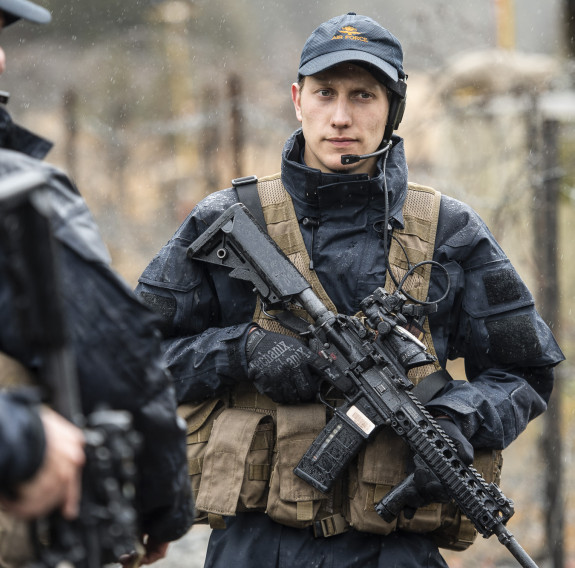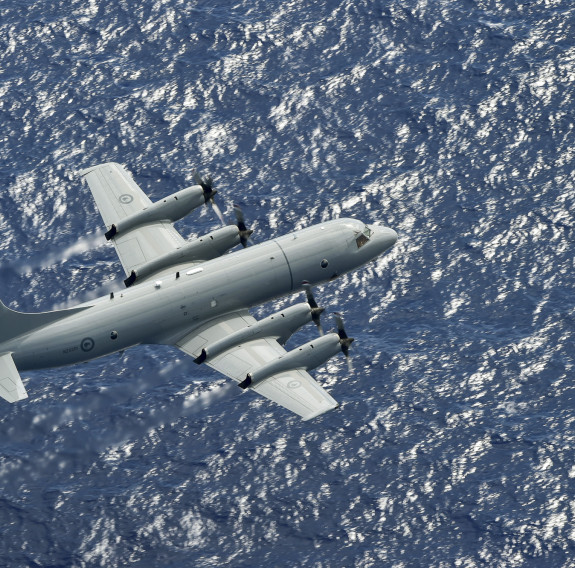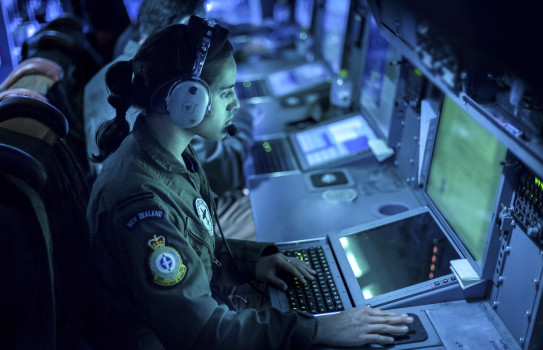Rongomau me te haumaru
Peace & security
Living in peaceful times doesn’t just mean being peaceful within our homes, land and country. We are an island nation, surrounded by water. To protect our country beyond dry ground, we need an Air Force.
It is easy to think that because we’re a long way from other countries, we are safe from problems that other countries have. We might feel that threats to peace don’t affect us. But in a modern world, they do. New Zealand is vulnerable to disruption. Our prosperity is reliant on maritime trade, with 90 per cent of our trade coming via the sea. We also need safe air routes in and out of New Zealand, and we need safe and secure lines of communication.
The Royal New Zealand Air Force contributes to protection of our peace and security, our way of life. A combat-capable Air Force that can detect, deter and counter threats to New Zealand is a deterrent to those who might threaten the peace and security we enjoy.
We don’t do this alone. New Zealand partners with other countries, such as Australia, the United Kingdom, the United States and Canada, to promote global security. Globally, there are more challenges. Different countries around the world are pursuing goals that are threats to peace. There are people who pursue extreme ideologies. Organised crime is international. Countries like New Zealand are stronger when we work with other countries to promote peace and security.
We are a small country, but there are others who are smaller and even more vulnerable. Just as large countries share the responsibilities, so too does New Zealand for its South Pacific neighbours. We are a Pacific Island country and what happens in the South Pacific directly affects our security and well-being. We have a constitutional responsibility to the Cook Islands, Niue and Tokelau. The Air Force will respond to events in the Pacific and undertake security and stability operations.
Why ask New Zealand for help? It’s in our history and in the way New Zealanders are viewed around the world. The world views New Zealand as a nation with people who want to do the right thing and help others. This culture is inherent in our Defence Force. We’ve been doing it a long time, often as part of an international team trying to prevent or resolve conflict, such as a part of United Nations initiatives. Sometimes it’s important enough to keep helping for years. We have long commitments to peace and security in Asia, the Pacific, and the Middle East.


